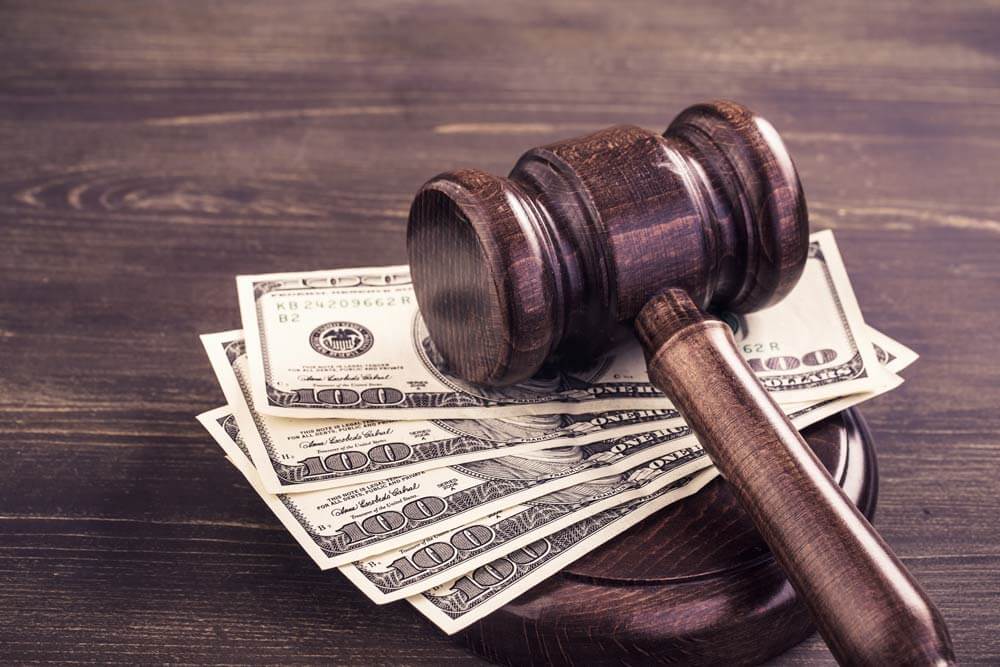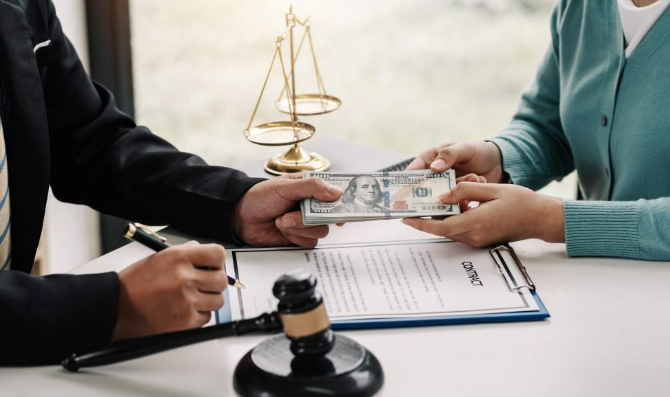
How much does it cost to file bankruptcy? Although bankruptcy is a viable option for overwhelming debts, it does come with its own costs. You will not only pay for the short-term cost of filing bankruptcy and hiring an attorney but also have to deal with the long-term financial consequences. Attorney fees range from $750 up to $4,500 depending on the complexity. Filing fees can add $300 to $340 dollars.
Immediate Costs of Bankruptcy
The federal government establishes the filing costs for bankruptcy, which do not include attorney fees. Typically, Chapter 7 bankruptcy attorney fees are higher. The cost of Chapter 7 bankruptcy can vary between $750 and $4,500.
In many jurisdictions, there are limits on the fees that attorneys can charge in bankruptcy proceedings. These limits are clearly outlined, and the U.S. Department of Justice randomly audits these agreements to ensure compliance.
the federal government mandates that bankruptcy filers undergo credit counseling. If you declare bankruptcy, you will be responsible for paying for credit counseling, which can range from $10 to $50.
BOOK A FREE CONSULTATION HERE!
Long-Term Costs of Bankruptcy
The long-term effects of bankruptcy can be even more damaging than the initial costs.
Chapter 7 bankruptcy can remain on your credit history for 10 years, while Chapter 13 can stay on it for seven years. It is important to note that your credit report will be affected immediately by bankruptcy.
According to myFICO, you can expect to see a drop of up to 50% in your credit score. In general, the higher the score, the greater the impact of bankruptcy.
Your financial situation could be affected for many years by a bankruptcy on your credit file. You may have difficulty qualifying for credit cards and loans. If you do qualify, you may be subject to a high-interest rate. A good credit rating can mean the difference between thousands of dollars and more.
Your credit score is important for many reasons, not just borrowing money. Credit history can also affect your ability to get a job, rent an apartment, or sign up for insurance.
The impact of bankruptcy on your credit score will diminish over time.
Types of Bankruptcy
If you are an individual considering filing for bankruptcy, you have the option to choose between two types of bankruptcy. In general, your choice of bankruptcy will be determined by the circumstances you face, and less by personal preferences.
Chapter 7
Chapter 7 bankruptcy has the least financial impact. If you are unable to pay your monthly debts, this is the type of bankruptcy that’s best for you. After you file for bankruptcy, your assets will be used to pay creditors.
Most people don’t know that Chapter 7 is a “liquidation” and, depending on your car, real estate, bank accounts, business interests, etc., those things could be put at risk of liquidation.
Certain assets and properties are exempted from liquidation Chapter 7 bankruptcy such as:
- Your 401(k), personal retirement plans (up to $1 million), and pension
- Benefits from the government, such as Social Security, unemployment benefits, disability benefits and veterans’ benefits
- Support for children and alimony
- Earnings after filing
- Equity in your primary home (partial or total)
- Your vehicle
- Furniture, clothing, appliances, and other household goods.
You must meet the following criteria to qualify for Chapter 7 bankruptcy:
- Your monthly income is below the median for your state.
- The lesser of the following is your current monthly income less expenses and unsecured payments over five years: 25% of the nonpriority unsecured debt, $9,075, $15,150, or the greater of these two amounts:
If you have had a bankruptcy dismissed in the last 180 days due to failure to comply with court orders or appear before a court, then you cannot file Chapter 7 bankruptcy. Also, you won’t be eligible for Chapter 7 bankruptcy either if you have received a Chapter 7 or Chapter 13 discharge in the last eight years.
Chapter 13
You can file for Chapter 13 bankruptcy if you do not qualify for Chapter 7. This type of bankruptcy allows you to make a repayment plan for your assets.
Chapter 13, which is a court-ordered budget, is very difficult and painful to most people. It’s very hard for an average person to live with.
You’ll have to follow a Chapter 13 payment plan that ranges from three to five years. Your payment schedule will be determined by your income. If your income is below the median income in your state, you will have a three-year plan. If your income is above the median income in your state, then you will have a five-year plan.
For instance, if you are left with $500 per month after you pay all your expenses, you would then be paying $500 per month to a Chapter 13 plan over 60 months. In this hypothetical, you would have to pay $30,000 back. You would have a 100% plan if your debt was $30,000 or less. If your debt is $100,000, then you are on a 30% payment plan.
FAQs
What are the different types of bankruptcy?
Chapter 7 bankruptcy and Chapter 13 bankruptcy are the two options available to an individual. Chapter 7 is liquidation while Chapter 13 (also called a wage earner’s program) helps someone pay their debts through a series of installments spread over three to five years.
There are different types of bankruptcy that can be filed by organizations. Chapter 11 is for businesses while Chapter 9 is for municipalities. Chapter 12, is applicable to small farmers and fishermen.
What is the cheapest type of bankruptcy?
Chapter 7 bankruptcy is the least expensive type of bankruptcy. The attorney fees are typically lower for Chapter 7 bankruptcy than for Chapter 13 bankruptcy. Those with incomes below 150% of the federal poverty line may also be eligible for a fee waiver or to pay in installments.
Chapter 7 bankruptcy fees are lower and you end up paying your creditors less. Chapter 7 bankruptcy only requires you to pay the liquidated value of your assets. A Chapter 13 bankruptcy may require you to pay much more over a period of three or five years.
Can you represent yourself in a bankruptcy case?
You can represent yourself instead of hiring a lawyer in bankruptcy proceedings. In simple cases, it might be a good idea to represent yourself. It’s recommended to hire a bankruptcy attorney like Tenina Law if you want to avoid the financial and legal consequences of bankruptcy.
Final Thoughts – How Much Does It Cost to File Bankruptcy
The cost of filing bankruptcy can vary depending on several factors, including the type of bankruptcy and jurisdiction. While the federal government sets the filing fees, attorney fees, and credit counseling costs are additional expenses to consider. Chapter 7 bankruptcy tends to be more expensive than Chapter 13, and it’s important to be aware of the potential impact on your credit history. Ultimately, the decision to file for bankruptcy should be based on your individual circumstances and financial situation.
Tenina Law Offers a FREE Consultation
If you are in need of professional bankruptcy services in Los Angeles, look no further than Tenina Law. With their team of experienced bankruptcy attorneys, they can provide you with the guidance and support you need during this challenging time. Whether you are considering Chapter 7 or Chapter 13 bankruptcy, Tenina Law is dedicated to helping you navigate the process and find the best solution for your specific situation.
Call (213) 596-0265 to receive a no-obligation bankruptcy consultation from an experienced Los Angeles bankruptcy lawyer.







[…] is a difficult decision to declare bankruptcy, but with the correct knowledge and guidance it can be a powerful tool in […]